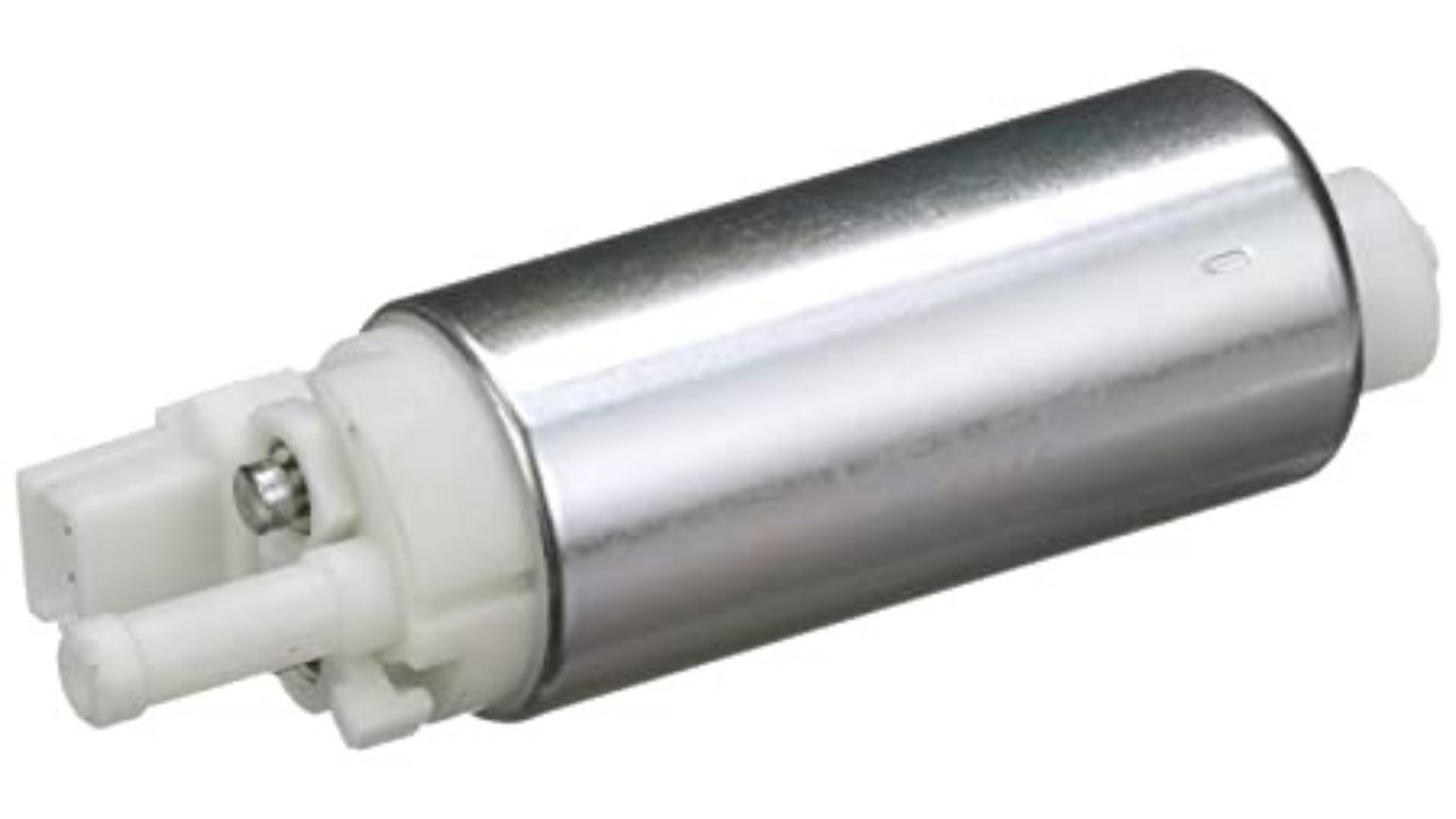As the battery weakens, your car’s electrical problems become more prevalent, so here is everything you need to know about how a weak car battery affects the fuel pump.
Can a Weak Battery Cause a Fuel Pump Not to Work?
If your vehicle has a weak battery, it will affect the fuel pump, making it challenging to push enough lubricant for the other engine components. Consequently, this causes the engine to overheat and could result in an engine fire if you drive the car for longer. It is the work of the fuel pump to inject enough fuel into your vehicle’s engine.
If the fuel pump does not perform as expected, the combustion process will not start. Instead, fuel thinning will occur due to insufficient fuel; overheating the engine. The engine’s valves and pistons will likely sustain damage if this goes on for long. With time, this will negatively affect your vehicle’s performance.
The Connection Between Battery and Fuel Pump
The primary function of the fuel pump is to pump fuel into the engine’s combustion chamber. Your car’s battery powers the fuel pump, which explains why a weak battery negatively affects the pump. Once you turn on your car’s ignition, the battery recharges, and it supplies power to the respective Power Control Module (PCM) circuits.
This activates the relay, which in return powers the fuel pump. Once the fuel pump is powered, the electric motor inside it starts rotating, and after some time, the fuel system’s pressure rises. The PCM has a timer that limits the amount of time the fuel pump will run before your vehicle’s engine starts.
Once this process is complete, fuel enters the pump through a suction valve and filter mesh socks. These filter socks prevent debris or dust from entering the fuel pump and contaminating the fuel.
Afterwards, the fuel exits the pump via a check valve, and it enters the engine through a pipeline and filter. The fuel pump continues to function for as long as the engine runs.
Generally, the fuel pump operates at different speeds and pressure depending on the amount of voltage supplied. The voltage must be within the specified limits to ensure a steady supply of fuel to the engine. Therefore, if the amount of voltage provided is low due to a weak or dying battery, the fuel pump will not run as well as expected.
A weak battery will result in a drop in fuel pressure, and in the long run, the fuel pump will not supply the right amount of fuel to the engine. This will lead to engine misfires and stalling.
If the Battery Is Not the Problem, What Would Cause a Fuel Pump Not to Work?
Fuel pump failures usually occur without warning. Fuel pumps can cause extensive damage if you do not repair or replace them on time. Besides a weak battery, various factors cause fuel pump failure. They include:
Low fuel
Every time the gas light appears on your vehicle’s dashboard, you know it is time to refill your tank. However, every driver knows that even if the light appears, it does not mean that the fuel tank is empty.
There is adequate fuel left inside the tank to last for a couple of miles. While driving like this is common and seems harmless, it can easily trigger fuel pump failure.
A fuel pump can only continue to pump fuel effectively if there is plenty of it. When the fuel tank runs low, the pump starts taking in air, leading to overheating issues. Nowadays, most fuel pumps are fitted inside the tank so that the fuel can cool the electric motor.
This means that if the fuel is low, the fuel pump will overwork and will not be able to cool down in time. Therefore, if you often drive your vehicle with low fuel, do not be surprised that your fuel pump does not work as effectively.
Contaminated and dirty fuel
Every time you drive, debris draws into the fuel system. Though the fuel pump has a filter sock that prevents debris from entering the combustion engine, it is not always effective.
Some particles still pass through into the fuel pump and other parts of the engine. These particles will then wear out the impeller and the fuel pump.
This will force the fuel pump to malfunction or fail entirely in the long run. It is also worth noting that your vehicle’s fuel tank can accumulate rust and debris over time, having a similar effect to the fuel pump.
Understandably, it is difficult to tell whether the fuel you are using is contaminated. Therefore, you should keep the filter clean at all times to prevent debris from accessing the fuel pump and damaging it.
Water in the fuel
Having water inside the fuel can also cause your vehicle’s fuel pump not to work. The water can corrode the internal components of the fuel pump. Once the internal components corrode, the fuel pump will malfunction and eventually fail. It usually happens when you do not drive your vehicle regularly.
What Problems Can a Weak Battery Cause?
Most of the time, car batteries do not last as long as we would want them to. Some modern vehicles have batteries that last for as little as two years. Once your car battery starts aging and weakening, you will likely deal with more electrical problems with your car than before.
Most modern vehicles require a steady supply of power from a healthy battery in precise quantities. If this does not happen, your vehicle’s components and electrical systems will begin experiencing serious problems that can be costly to fix. The following are the most common problems brought by a weak battery:
Spontaneous alarm activation
A weak battery can cause a malfunction in your vehicle’s alarm system. When this happens, the alarm will activate randomly, without triggering. If your vehicle’s alarm starts activating itself randomly and you are confident that no one has tampered with it, it indicates a weak battery.
You should consider inspecting your car battery for any salt-like deposits if this happens. If they are present, ensure that you remove them since they can discharge your battery. If there are no deposits present, consider replacing the old battery.
Random illumination of several warning lights
If multiple warning lights randomly appear on your dashboard, it may indicate a weak battery. These warning lights usually come with the non-functionality of some electrical systems such as traction control, cruise control, and anti-lock brakes. Your vehicle will run smoothly for some time, and before you know it, all warning lights appear on the dashboard.
Drive your car to a reliable mechanic for inspection immediately if you encounter this issue. They will examine the battery and recommend a replacement if it has damage beyond repair.
Auto start/stop failure
Modern vehicles have automatic start/stop buttons that turn off the ignition when the car comes to rest or restart when you release the brakes. The automatic start/stop button is crucial for reducing idling time and saving fuel. This button requires a healthy battery and other conditions to operate effectively.
If your car battery is weak, the auto start/stop button will exhibit signs of malfunctioning. The system will not restart or turn off your vehicle’s ignition, which can be pretty dangerous, especially when driving in traffic.
You can avoid such a problem by regularly inspecting the battery as part of your vehicle’s maintenance.
Failure to shift out of park
Some modern vehicles have a shifter that functions like a joystick instead of having a mechanical gear shifter with a physical linkage. When activated, this gear shifter sends an electric signal to the PCM and engages the required gear.
However, this only happens when the battery supplies enough power. If the battery is weak, it will produce inadequate power and lead to problems with the gear shifter. It will lead to inconsistent operation and the inability to shift your vehicle out of park.
Why Does My Fuel Pump Have Power But Not Working?
If the fuse and relay are transmitting power to the fuel pump, but it is not working, then the fuel pump or fuel pump circuit is faulty.
To fix this problem,
- Verify that the wiring to the fuel pump is in good condition.
- Additionally, the fuel pump may not be working because it is defective, even when new. Ensure that you purchase a fuel pump from an authorized parts dealer.
Troubleshooting Tips For Fuel Pump Problems
If your vehicle’s fuel pump is malfunctioning or failing, follow these tips to determine the cause:
- Check the fuel tank to ensure that there is adequate fuel.
- Ensure the timing belt is in place and not loose.
- Turn on the ignition and listen for fuel pump noise. If you do not hear any noise, it indicates an electrical issue.
- Check the fuel filter for debris and dirt. If the fuel filter is clogged, consider replacing it.
- Ensure there is fuel inside the fuel lines. If the fuel pump is not pumping any fuel, you may be dealing with a clogged fuel line.

